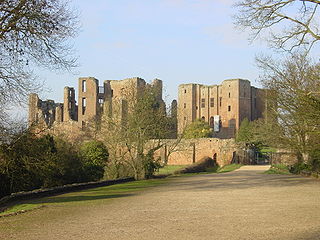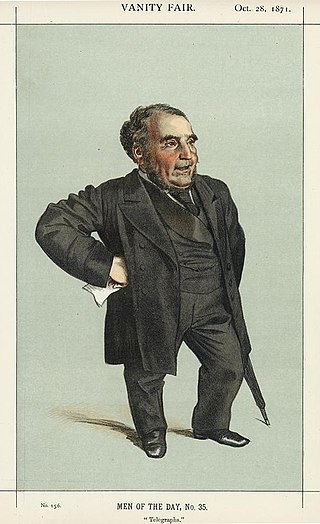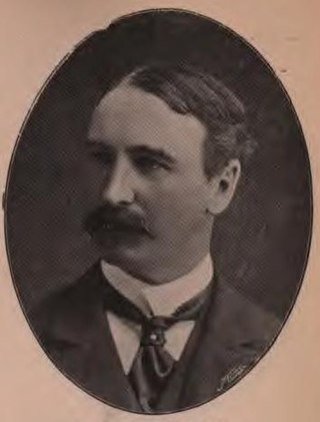
Earl of Stradbroke, in the County of Suffolk, is a title in the Peerage of the United Kingdom. It was created in 1821 for John Rous, 1st Baron Rous, who had earlier represented Suffolk in the House of Commons.

Viscount Runciman of Doxford, of Doxford in the County of Northumberland, is a title in the Peerage of the United Kingdom. It was created in 1937 for the Hon. Walter Runciman, a politician whose career included service as a Member of Parliament, President of the Board of Trade and Lord President of the Council. He was the son and heir apparent of the shipping magnate and Liberal politician Walter Runciman, who had been created a Baronet in the Baronetage of the United Kingdom in 1906 and Baron Runciman, of Shoreston in the County of Northumberland, in 1933, also in the Peerage of the United Kingdom. As his father was still alive at the time of the creation of the viscountcy the title of this peerage was Runciman of Doxford rather than simply Runciman. As of 2020 the titles are held by the first Viscount's great-grandson, the fourth Viscount, who succeeded his father in 2020. He is a well-known political scientist at the University of Cambridge.
Baron Iliffe, of Yattendon in the County of Berkshire, is a title in the Peerage of the United Kingdom. It was created in 1933 for the newspaper magnate Sir Edward Iliffe. For many years the family controlled newspapers in Birmingham and Coventry, including the Birmingham Post, the Birmingham Mail and the Coventry Evening Telegraph, and were also part owners of The Daily Telegraph. The first Baron also represented Tamworth in Parliament as a Conservative.

Baron Hesketh, of Hesketh in the County Palatine of Lancaster, is a title in the Peerage of the United Kingdom. It was created in 1935 for Sir Thomas Fermor-Hesketh, 8th Baronet, who had previously briefly represented Enfield in the House of Commons as a Conservative. As of 2010 the titles are held by his grandson, the third Baron, who succeeded his father in 1955. Lord Hesketh held junior ministerial positions in the Conservative administrations of Margaret Thatcher and John Major. However, he lost his seat in the House of Lords after the House of Lords Act 1999 removed the automatic right of hereditary peers to sit in the upper chamber of Parliament.
Baron Howick of Glendale, of Howick in the County of Northumberland, is a title in the Peerage of the United Kingdom. It was created in 1960 for Sir Evelyn Baring, the former Governor of Kenya. A member of the famous Baring family, he was the third and youngest son of Evelyn Baring, 1st Earl of Cromer, and the great-grandson of Sir Francis Baring, 1st Baronet, the founder of Barings Bank. Baring's uncle was Edward Baring, 1st Baron Revelstoke, the father of Maurice Baring, while other members of the family include Francis Baring, 1st Baron Northbrook, and Alexander Baring, 1st Baron Ashburton. As of 2014 the title is held by the first Baron's son, the second Baron, who succeeded in 1973.
Baron Gainford, of Headlam in the County Palatine of Durham, is a title in the Peerage of the United Kingdom. It was created on 3 January 1917 for the Liberal politician Jack Pease, a member of the Darlington Pease family. He notably served as President of the Board of Education from 1911 to 1915. Pease was the second son of Sir Joseph Pease, 1st Baronet, and the grandson of Joseph Pease, while Arthur Pease was his uncle and Sir Arthur Pease, 1st Baronet, Beaumont Pease, 1st Baron Wardington, and Herbert Pease, 1st Baron Daryngton, were his first cousins. The third baron was a former member of the London County Council and of the Greater London Council. As of 2013 the title is held by his younger brother, the fourth baron, an architect and town planner; County Planning Officer for Ross and Cromarty 1967–1975 and Scottish Office Inquiry Reporter 1978–1993.

Baron Kenilworth, of Kenilworth in the County of Warwick, is a title in the Peerage of the United Kingdom. It was created in 1937 for the motor industry magnate Sir John Siddeley. His grandson, the third Baron, was an interior designer and the founder of John Siddeley International Ltd. As of 2010 the title is held by the latter's son, the fourth Baron, who succeeded in 1981.

Baron Northbourne, of Betteshanger in the County of Kent, is a title in the Peerage of the United Kingdom. It was created in 1884 for Sir Walter James, 2nd Baronet, who had earlier represented Kingston upon Hull in the House of Commons as a Conservative. His son, the second Baron, sat as a Liberal Member of Parliament for Gateshead. The latter's great-grandson, the fifth Baron, who succeeded his father in 1982, was one of the ninety elected hereditary peers that were allowed to remain in the House of Lords after the passing of the House of Lords Act 1999, and sat as a cross-bencher until his retirement in 2018. As of 2019, the titles are held by his son, the sixth baron, who succeeded his father in that year.

Baron Strathcarron, of Banchor in the County of Inverness, is a title in the Peerage of the United Kingdom. It was created on 11 January 1936 for the Liberal politician Sir Ian Macpherson, 1st Baronet. He had already been created a baronet, of Drumalban on 26 April 1933. As of 2017, the titles are held by his grandson, the third Baron, who succeeded his father in 2006.

Baron Merthyr, of Senghenydd in the County of Glamorgan, is a title in the Peerage of the United Kingdom. It was created in 1911 for the Welsh coal mining magnate Sir William Lewis, 1st Baronet. He had already been created a baronet, of Nantgwyne in the County of Glamorgan, in 1896. The barony is named after the town of Merthyr Tydfil, where Lewis was born. Lord Merthyr's grandson, the third Baron, was Chairman of Committees in the House of Lords from 1957 to 1965 and a Deputy Speaker from 1957 to 1974. The latter was succeeded by his son, the fourth Baron. He disclaimed the peerage for life on 26 April 1977, three weeks after succeeding his father. He did not use his title of baronet either. He died on 5 August 2015.

Baron Morris, of St John's in the Dominion of Newfoundland and of the City of Waterford, is a hereditary barony in the Peerage of the United Kingdom which was created on 15 January 1918 for the lawyer and politician Sir Edward Morris upon his retirement as Prime Minister of Newfoundland.
Baron McNair, of Gleniffer in the County of Renfrew, is a title in the Peerage of the United Kingdom. It was created on 4 August 1955 for the lawyer and judge Sir Arnold McNair. He was the first President of the European Court of Human Rights. As of 2010 the title is held by his grandson, the third Baron, who succeeded his father in 1989.
Baron Cawley, of Prestwich in the County Palatine of Lancaster, is a title in the Peerage of the United Kingdom. It was created in 1918 for the Liberal politician Sir Frederick Cawley, 1st Baronet. He had previously represented Prestwich in the House of Commons and served as Chancellor of the Duchy of Lancaster from 1916 to 1918. Before his elevation to the peerage, Cawley had been created a baronet, of Prestwich in the County Palatine of Lancaster, in the Baronetage of the United Kingdom, in 1906. His grandson, the third Baron, notably served as Deputy Chairman of Committees in the House of Lords from 1958 to 1967. As of 2023 the titles are held by the latter's eldest son, the fourth Baron, who succeeded in 2001.
Baron Rugby, of Rugby in the County of Warwick, is a title in the Peerage of the United Kingdom. It was created in 1947 for the civil servant Sir John Maffey. He was Governor-General of the Sudan between 1926 and 1933 and Permanent Under-Secretary of State for the Colonies between 1933 and 1937. At Winston Churchill's request he became the first United Kingdom representative to Ireland in 1939, a post he held throughout the war years and until his retirement in 1949. The title is now held by his grandson, the third Baron, who succeeded his father in 1990.

Sir John Pender KCMG GCMG FSA FRSE was a Scottish submarine communications cable pioneer and politician.
John Cuthbert Denison-Pender, 1st Baron Pender was a British Conservative politician. He retired from politics in 1922. In 1925 he was vice-chairman and joint managing director of Cable & Wireless Ltd., and governor of Cable & Wireless Holdings 1929–1945. In the years 1925-1940 he was a director of P&O, British-India Steam Navigation Company, National Provincial Bank, Eastman Kodak and Northern Assurance.
Sir John Denison Denison-Pender was chairman and managing director of the Eastern Telegraph Company.

Sir James Pender, 1st Baronet was a British businessman, yachtsman and Conservative Party politician. He sat in the House of Commons from 1895 to 1900.
John Jocelyn Denison-Pender, 2nd Baron Pender was a British civil servant and businessman.
Cable & Wireless Communications Ltd operating as C&W Communications is a telecommunications company which has operations in the Caribbean and Central America. It is owned by Liberty Latin America and is headquartered in Denver, Colorado.











